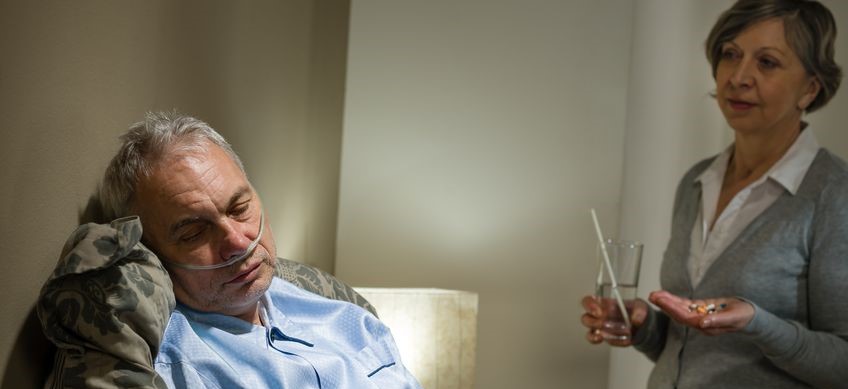Some patients who show up in emergency rooms and are found to need acute care hospitalization by traditional clinical standards are instead being offered a “Hospital at Home Experience.”
By Steve Moran
This could blow your mind . . . it did mine!
At the July, 2016 Marcus Evans Post Acute CXO conference in Florida, Ezekiel Emanuel, a former Obama Administration guy, strongly suggested that the future of healthcare will look a lot less institutional. His most expansive example was “Hospital at Home.”
I am not quite sure how I missed this before . . . it sort of rings a bell . . . but somehow never quite surfaced in my reading or research. But here is the proposition:
Some patients who show up in emergency rooms and are found to need acute care hospitalization by traditional clinical standards are instead being offered a “Hospital at Home Experience.”
What ‘Hospital at Home’ Looks Like
The patient receives some initial clinical interventions and testing while in the emergency department. After which they are transferred (not discharged) to the hospital at home program.
This means they receive daily nursing visits and daily monitoring by physicians. The first day a nurse stays with the patient 3-4 hours to make sure they are stable and settled. Then for the next three days the patient receives twice daily nurse visits and a physician visit once daily (higher frequency if medically required).
They also can receive lab and x-ray services at home. They can even have IVs. If they need other interventions they can make a field trip back to the hospital.
The Why of ‘Hospital at Home’
Hospitals are really good at fixing things and doing procedures that require multiple people or big and expensive complicated equipment. They are horrible at letting people sleep, at providing tasty food, at making people feel comfortable. It also turns out that hospitals are places that make people sick, in large part because they have so many sick people, which means there are lots of bugs floating around.
It turns out that ‘hospitals at home’ have great outcomes:
-
A lower average length of stay
-
Lower rates of mortality, delirium, sedative medication use, restraints
-
Cost savings of 19%-30%
-
Fewer lab and diagnostic tests
The biggest thing is that in hospitals patients wants and needs are not all that important. Everything revolves around fitting into physician schedules and availability of hospital resources. When you think about it, even with really sick patients, doctors essentially never touch the patient, they are paid for their knowledge. Even nurses touch patients only intermittently, which suggests doing hospital at home is way better.
Implications for Senior Living
This would seem to have the potential for great impact on senior living; good and bad:
-
If hospital at home is good, it would seem that hospital at home done is a senior living community could be spectacular. Really none of the downsides of a patient being in an acute hospital and none of the downsides of being home and having periods of no help in the house. All of the upsides of being at home except some help is available 24/7 and there is great food.
For sure there are issues, licensing being number one.
-
It is also possible there could even be some revenue opportunities.
-
This could also mean not so good things for the skilled nursing folks, because the question then needs to be asked . . . how about skilled nursing at home? What makes skilled nursing at home kind of scary for traditional operators is that in today’s mainstream skilled facilities rooms are small and amenities are not great.
In reality the nurses only rarely ever go hands on with residents. Mostly what nurses do is pass meds, call the doctor and complete documentation. This is not a slam against nurses but rather a commentary on how screwed up the system is.
To the best of my knowledge, no one has tried hosptial at home in assisted living. Nor has skilled nursing at home been tried in a formal way (though it happens informally in tens of thousands of homes every day in this country).
It is something to be watching for.
Finally if you are interested in more information, just Google it. There is tons of very interesting reading.
|
Marcus Evans holds three post-acute events per year in various parts of the country. |








